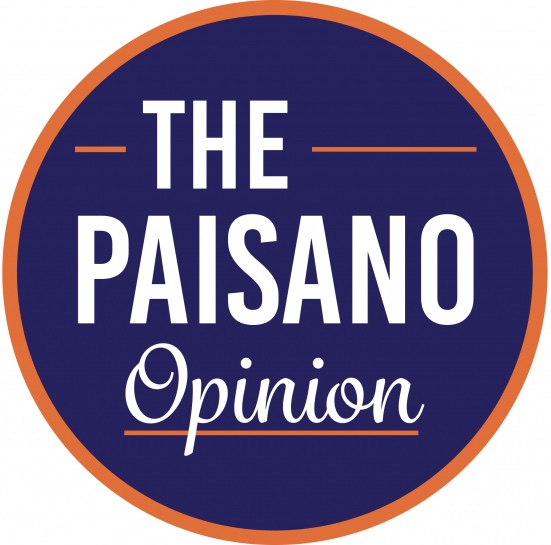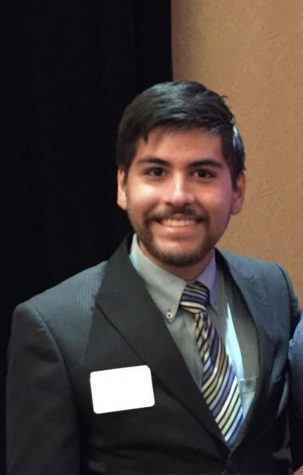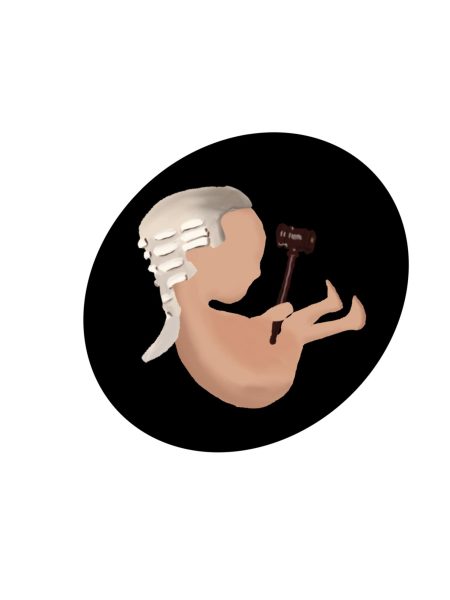Dissecting the chaos of debate #1


October 4, 2020
In September 1960, the first U.S. presidential debate on live television was held between candidates John F. Kennedy and Richard Nixon.
This debate is famous in political circles for the impact that the contrasting images of a tanned, well-groomed Kennedy and a gaunt, stubbly Nixon had not only on that year’s race but on the nature of presidential debates ever since. The apocryphal legend of 1960 holds that television viewers felt Kennedy had won while radio listeners favored Nixon, and while it’s unlikely to be true (or even quantifiable), its moral — that the visual aspect of a candidate’s performance is vitally important — has been reflected in every debate since, including in this week’s first Biden-Trump tilt. (You’ll never see either candidate on a debate stage sans proper makeup, as Nixon was that day.)
But in rewatching Kennedy vs. Nixon recently, what stood out were not the similarities between that debate and Tuesday’s but the differences. Kennedy may have been more telegenic, but he and Nixon both gave long, thorough and (most importantly) uninterrupted responses, talking for several minutes at a time and answering the questions directly. It was almost unnerving to see and hear with modern eyes and ears, given that I am so accustomed to the vulgarity of contemporary political culture.
In contrast to those black-and-white TV days of speaking in full paragraphs, Tuesday night’s debate featured a two-minute time limit for each answer. If a viewer wasn’t keen on focusing their attention on the same answer for that long, they were in luck, as thanks to a combination of the president’s trademark rudeness and tangentiality, it was rare that any answer even made it to two minutes uninterrupted.
The affair was split into six themed segments. The first, on the Supreme Court, almost immediately led to a discussion of the Affordable Care Act. Trump lied and said Biden’s plan would abolish private healthcare; Biden responded by correctly noting he wants to expand the ACA while Trump has tried to repeal it. It was during this segment, just minutes in, that Trump’s interruptions began to peel away the veneer of civility from the proceedings, to the consternation of moderator Chris Wallace.
Next came the segment on COVID-19, when Biden attempted to nail Trump to the wall for the 200,000+ American deaths attributed to the virus thus far under his watch. He also mentioned that Trump suggested that the American people inject bleach and that the pandemic would be over by Easter. Trump, characteristically refusing to take responsibility, retorted that millions would have died had Biden been in charge and claimed he had bested the Obama-Biden administration’s reaction to the 2009 H1N1 outbreak, despite the low-five-figure American death count in that pandemic’s first year. (The segment also provided an unintentionally humorous line about pharmaceutical companies when, after Biden said he wouldn’t trust a vaccine rushed out under the president’s imprimatur, Trump responded, “You don’t trust Johnson & Johnson or Pfizer?” Well, now that you mention it…)
The third segment, on the economy, was most noteworthy for its talk of Trump’s taxes. The president denied the recent New York Times article reporting that he had only paid $750 in federal taxes during 2016, saying he had actually paid millions during that year. Biden then asked Trump to prove the Times reporting false by producing his tax returns; Trump gave his customary answer, that he supposedly would when the returns are “finished” (a reference to an ongoing IRS audit of Trump).
The fourth segment, on race in America, featured both men attempting to depict the other’s record as the epitome of racism. Biden name-dropped many of the president’s “hits,” including Trump’s remark that there were “very fine people on both sides” in attendance at August 2017’s white-nationalist-filled “Unite the Right” rally in Charlottesville, Virginia; his repression of peaceful protests against police brutality after George Floyd’s death in Washington, D.C. for a photo op; and the death of one out of every 1,000 Black Americans from COVID-19 so far. Trump responded by bringing up the 1994 “crime bill” co-authored by Biden, long considered a legislative cornerstone of the mass incarceration of Black Americans; he also falsely claimed Biden had used the phrase “superpredators” to describe young Black criminals. Biden then affirmed his belief that America remains plagued by systemic racism while Trump singled out critical race theory and white privilege as the racist ideas du jour.
The race discussion bled into the next segment, on law and order, in which both blamed the other’s political party for the recent rise in violent crime, and Trump boasted of his monopoly on endorsements from law enforcement. Then, Wallace asked Trump to explicitly instruct the white supremacists and militias on the far-right wing of his base to stand down; the president responded by telling the Proud Boys, a group of self-styled “Western chauvinist” street brawlers, to “stand back and stand by,” then immediately pivoted to decrying Antifa violence.
Next came a discussion of both candidates’ records in which both strove to highlight their best points. During this segment, Biden, referencing recent comments by Trump that dead American soldiers buried in France were suckers and losers, bluntly told Trump that his deceased son, Beau, a military vet, was not a loser. Trump, unruffled, dismissed the attack with a blithe “I don’t know Beau” en route to one of his favorite topics: the other Biden son, Hunter. Trump railed about Hunter’s drug addiction, military discharge and alleged illicit dealings in Ukraine and China, the last of which Biden hotly declared had been proven false.
After that heated exchange, the rest of their squabbles felt anticlimactic. Trump downplayed anthropogenic climate change, the candidates quibbled over the economic merits of Biden’s climate plan and in the final segment, on voting by mail, Trump claimed that ballots were being sold by West Virginian mailmen and ending up in rivers before refusing to affirm that he would accept (and tell his supporters to accept) the results and timing of the vote-counting process. Finally, after 98 minutes, Wallace was released from his Herculean labor, and everyone staggered home a little woozier for their troubles.
Honestly, it’s hard to imagine that the momentum of the race was shifted much by the melange of on-brand sound bites the candidates provided Tuesday night. If any voter in America was moved to pick or reject a candidate (or both) after the debate, it came not from the content of their answers but from the negative energy that radiated in droves off the proceedings.
I don’t wish to draw an equivalence between Trump and Biden’s conduct. As always, it’s clear the president’s instigation was the main factor in making the situation combative. It’s hard not to get in the muck alongside Trump. Even Wallace couldn’t suppress a chuckle after Trump told Biden his events were sparsely attended not for social distancing purposes but because no one wanted to go.
How to combat such a political force? Biden is not a mean fellow, but on Tuesday night, he had to try and give as good as he got. Against any other opponent, Biden’s instruction for (an interrupting) Trump to shut up or his declaration that our current president is the worst America has ever had would have seemed gratuitous, if not bizarre. Against the one he faced in the debate, such statements allowed millions of Americans to vicariously live out their own dreams of dressing down Donald for a moment.
It’s true that the degradation of tone in American politics since Kennedy and Nixon took the stage 60 years ago — to say nothing of the Lincoln-Douglas debates or the ideological sparring of the Founding Fathers — isn’t all, or even mostly, Trump’s fault. But he is its surest avatar. His fiercest supporters back him not in spite of his rudeness but because of it. When Trump not only brings up Biden’s son disparagingly but seems to relish doing so, he is reflecting an attitude in the zeitgeist by which any means are acceptable in pursuit of desirable ends — and, as Saul Alinsky once said, “a good tactic is one your people enjoy.”
Did I enjoy the debate? I don’t know if I would say that … but I must admit it was certainly not boring.











